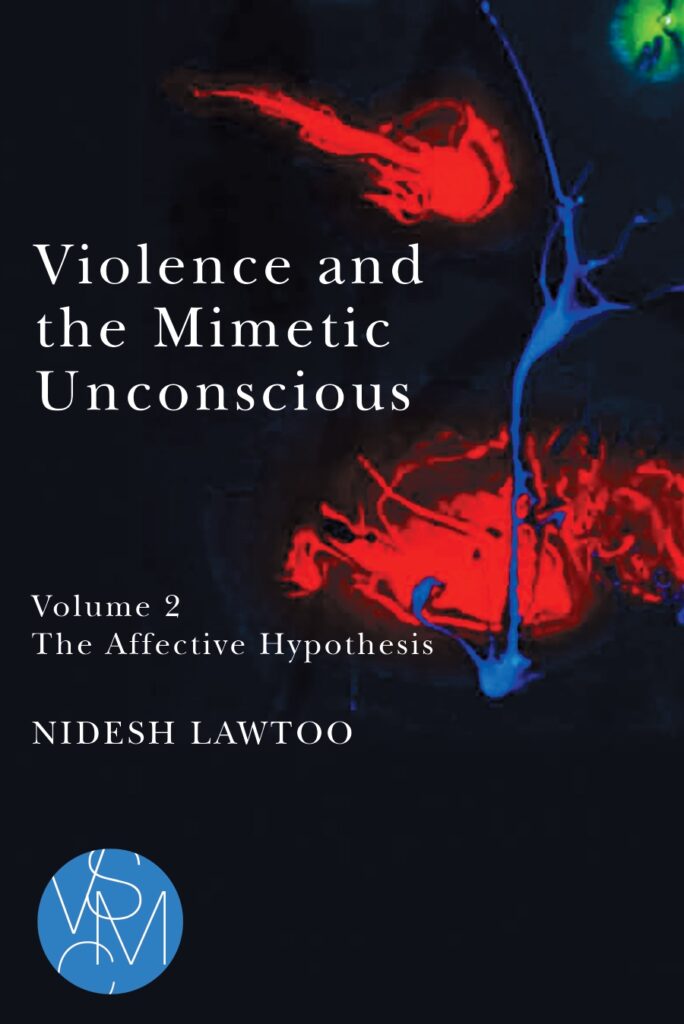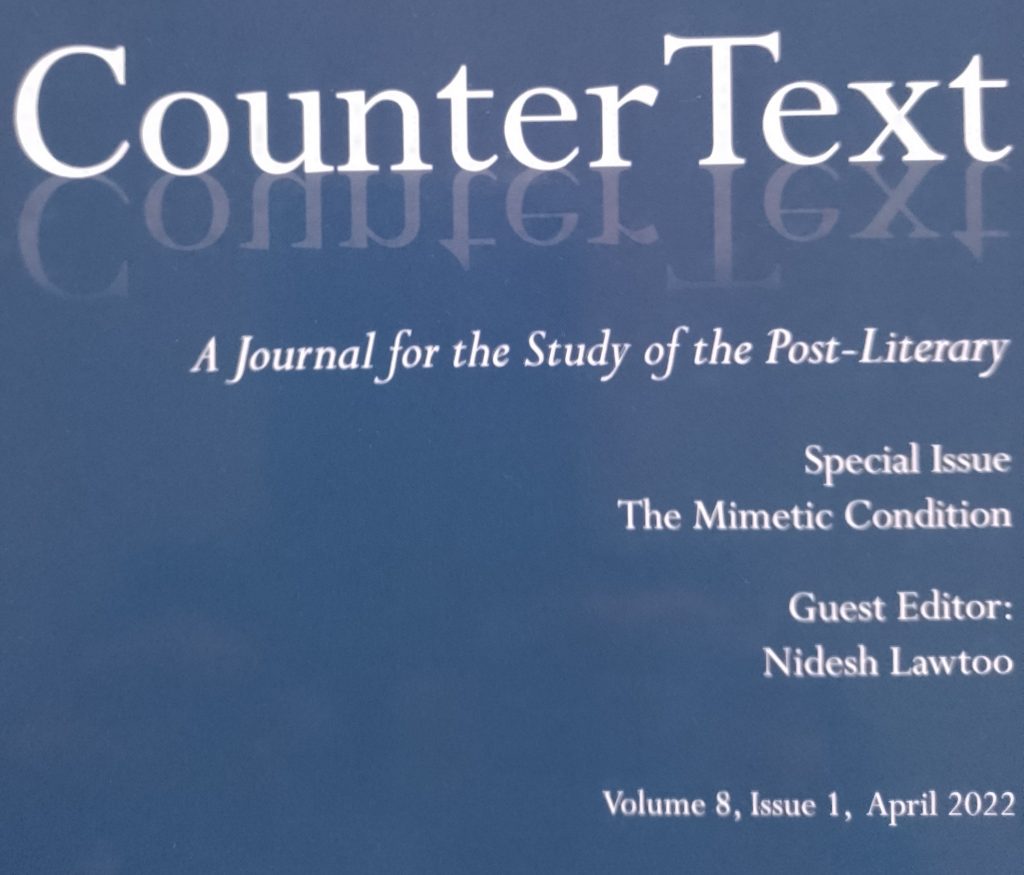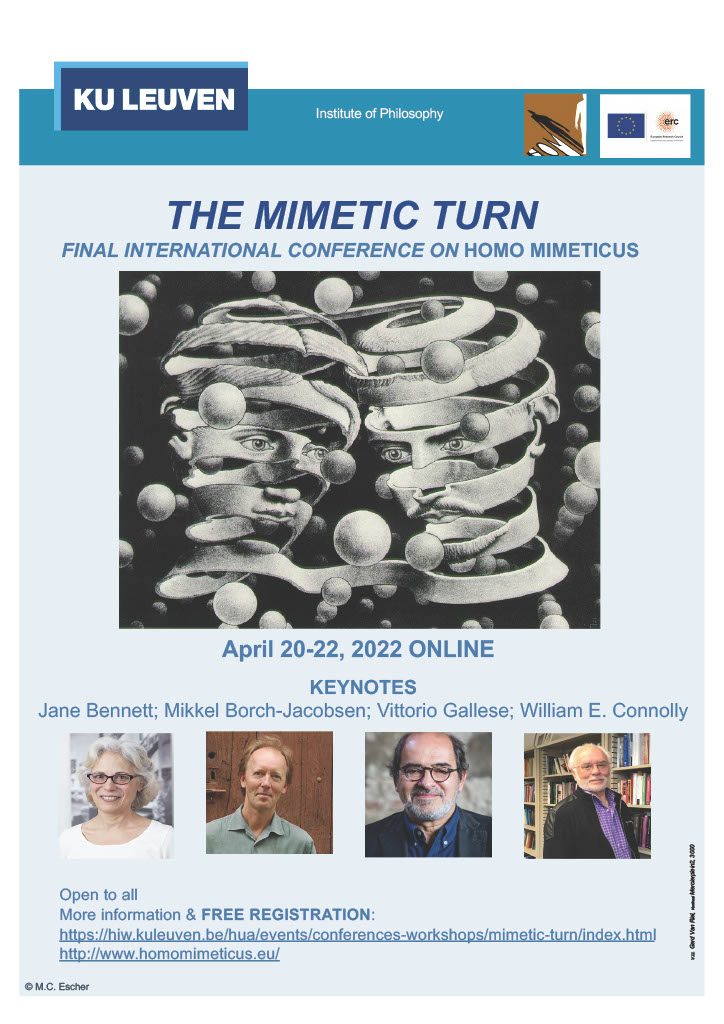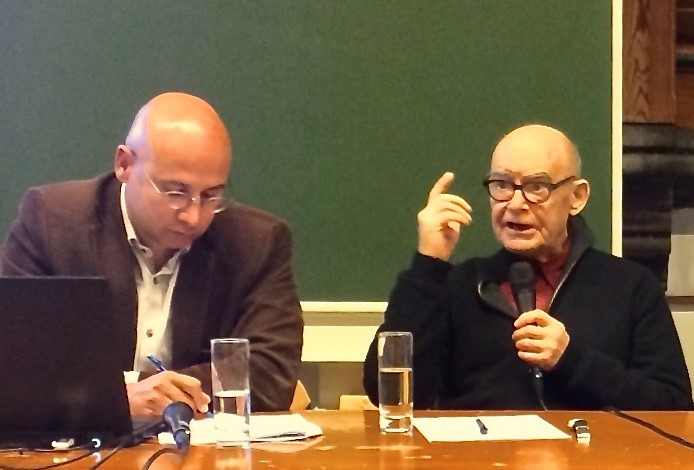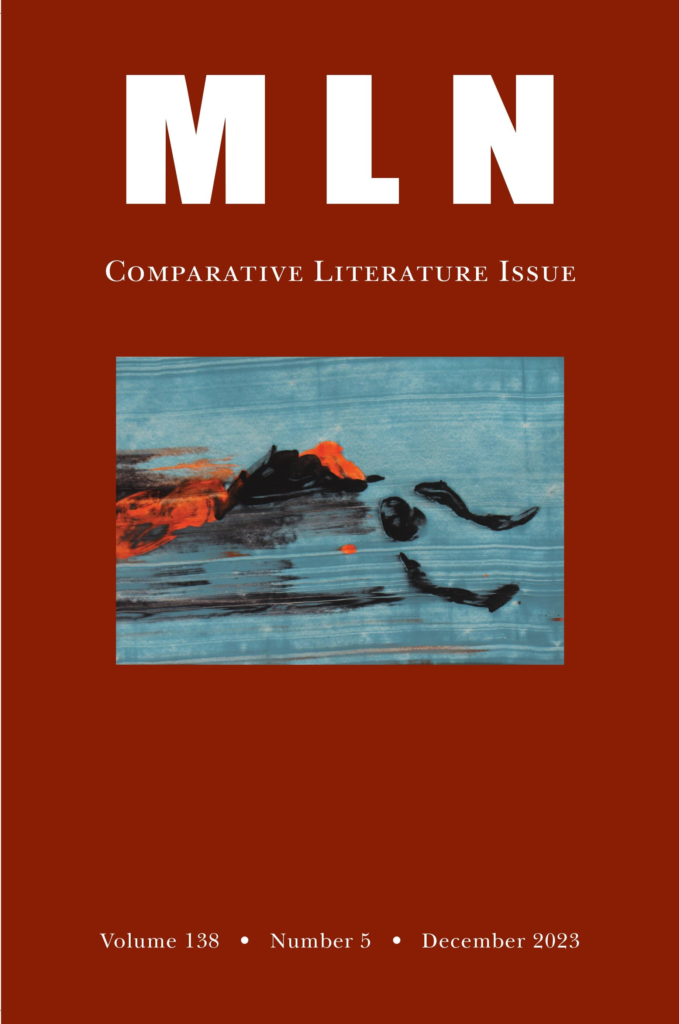
In this special issue of Modern Language Notes (Johns Hopkins UP) edited by Nidesh Lawtoo, contributors join literary and philosophical perspectives to further the interdisciplinary field of mimetic studies. After the linguistic and the affective turn, the new materialist and the performative turn, the cognitive and the posthuman turn, the issue argues for a re-turn to the ancient, yet also modern and still contemporary realization that humans are mimetic creatures, or homo mimeticus. Essays on Plato, Nietzsche, Wilde, Benjamin, Adorno, Borges, as well as on contemporary film and fiction, give theoretical and aesthetic substance to this claim. More information and OA articles available HERE.

